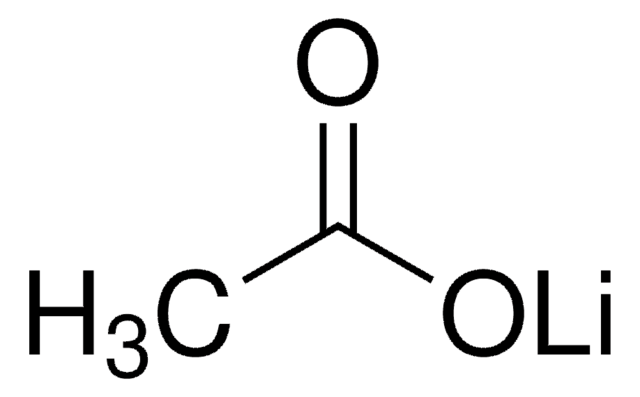202444
Poly(ethylene glycol)
average MN 3,350, hydroxyl, powder
Synonym(s):
Polyethylene glycol, PEG
About This Item
Recommended Products
Product Name
Poly(ethylene glycol), average Mn 3,350, powder
form
powder
mol wt
average Mn 3,350
pH
4.5-7.5
viscosity
90 cSt(210 °F) (99 °C)(lit.)
mp
54-58 °C (lit.)
density
1.204 g/mL at 25 °C
Ω-end
hydroxyl
α-end
hydroxyl
SMILES string
C(CO)O
InChI
1S/C2H6O2/c3-1-2-4/h3-4H,1-2H2
InChI key
LYCAIKOWRPUZTN-UHFFFAOYSA-N
Looking for similar products? Visit Product Comparison Guide
Related Categories
General description
Application
It can be used to modify the surface of photocatalytic TiO2 nanopowder for its application in self-cleaning paints. PEG-coated TiO2 nanopowder can be prepared under mild conditions and show excellent colloidal stability.
It can be used as a cross-linker to prepare poly(N-isopropylacrylamide) based thermosensitive injectable hydrogels. The addition of PEG improves the chemical and mechanical properties of hydrogel and prevents it from dissolving in the swelling medium. Owing to their biocompatibility and biodegradability, these hydrogels are widely used for biomedical applications.
Features and Benefits
- High structural flexibility
- Biocompatibility
- High hydration capacity
- Devoid of any steric hindrance
Other Notes
related product
Storage Class Code
11 - Combustible Solids
WGK
WGK 1
Flash Point(F)
Not applicable
Flash Point(C)
Not applicable
Personal Protective Equipment
Choose from one of the most recent versions:
Already Own This Product?
Find documentation for the products that you have recently purchased in the Document Library.
Customers Also Viewed
Articles
Progress in biotechnology fields such as tissue engineering and drug delivery is accompanied by an increasing demand for diverse functional biomaterials. One class of biomaterials that has been the subject of intense research interest is hydrogels, because they closely mimic the natural environment of cells, both chemically and physically and therefore can be used as support to grow cells. This article specifically discusses poly(ethylene glycol) (PEG) hydrogels, which are good for biological applications because they do not generally elicit an immune response. PEGs offer a readily available, easy to modify polymer for widespread use in hydrogel fabrication, including 2D and 3D scaffold for tissue culture. The degradable linkages also enable a variety of applications for release of therapeutic agents.
Devising biomaterial scaffolds that are capable of recapitulating critical aspects of the complex extracellular nature of living tissues in a threedimensional (3D) fashion is a challenging requirement in the field of tissue engineering and regenerative medicine.
Our team of scientists has experience in all areas of research including Life Science, Material Science, Chemical Synthesis, Chromatography, Analytical and many others.
Contact Technical Service

